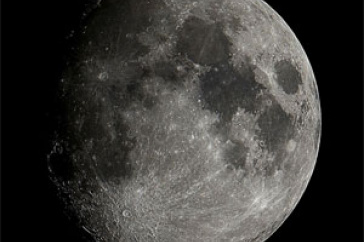Nobel Laureate Addresses 'What Is Space?' at UNH April 29

Photo credit: John Gianforte, UNH
DURHAM, N.H. - Frank Wilczek, professor of physics at the Massachusetts Institute of Technology and 2004 Nobel Laureate, will discuss "the new space, how we got to it, and where it points" at the University of New Hampshire Thursday, April 29, 2010, at 4 p.m. in the Memorial Union Building Theatre II. Wilczek's talk, part of the College of Engineering and Physical Sciences' Frontiers Lecture Series, is free and open to the public.
Considered one of the world's leading theoretical physicists, Wilczek describes his talk: "What is space: An empty stage, where the physical world of matter acts out its drama; an equal participant, that both provides background and has a life of its own; or the primary reality, of which matter is a secondary manifestation? Views on this question have evolved, and several times changed radically, over the history of science. Today, the third view is triumphant."
Wilczek, the Herman Feshbach Professor of Physics at MIT, is known, among other things, for the discovery of asymptotic freedom, the development of quantum chromodynamics, the invention of axions, and the discovery and exploitation of new forms of quantum statistics (anyons). When only 21 years old and a graduate student at Princeton University, in work with David Gross, he defined the properties of color gluons, which hold atomic nuclei together.
Wilczek was among the earliest MacArthur Fellows (1982-87) and in 2004 received the Nobel Prize in Physics. He contributes regularly to Physics Today and to Nature, explaining topics at the frontiers of physics to wider scientific audiences. Two of his pieces have been anthologized in "Best American Science Writing" (2003, 2005). Together with his wife Betsy Devine, he wrote a book, "Longing for the Harmonies" (W.W. Norton). His latest book, "The Lightness of Being: Mass, Ether, and the Unification of Forces" (Perseus) appeared in September 2008. He's currently working on "The Attraction of Darkness," a novel mixing science, music, sex, and murder.
The University of New Hampshire, founded in 1866, is a world-class public research university with the feel of a New England liberal arts college. A land, sea, and space-grant university, UNH is the state's flagship public institution, enrolling 12,200 undergraduate and 2,200 graduate students.
-30-
-
Media Contact
Debra Williams | UNH College of Engineering and Physical Sciences | debra.williams@unh.edu | 603-862-3102
Latest News
-
July 2, 2024
-
June 18, 2024
-
June 18, 2024
-
May 17, 2024
-
May 14, 2024

















































